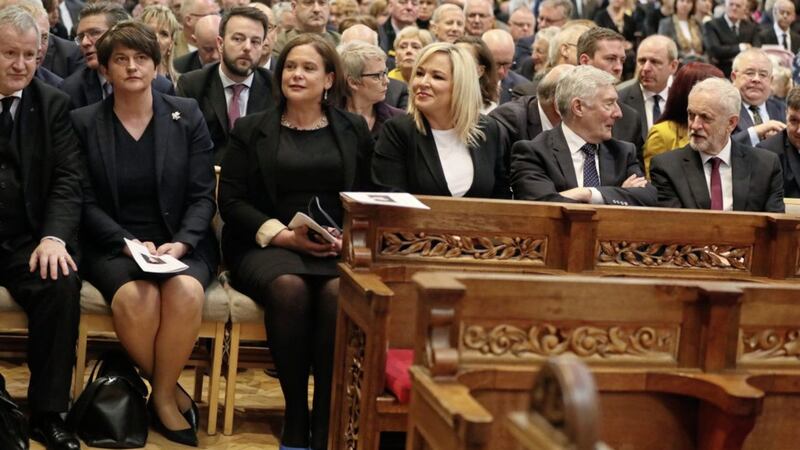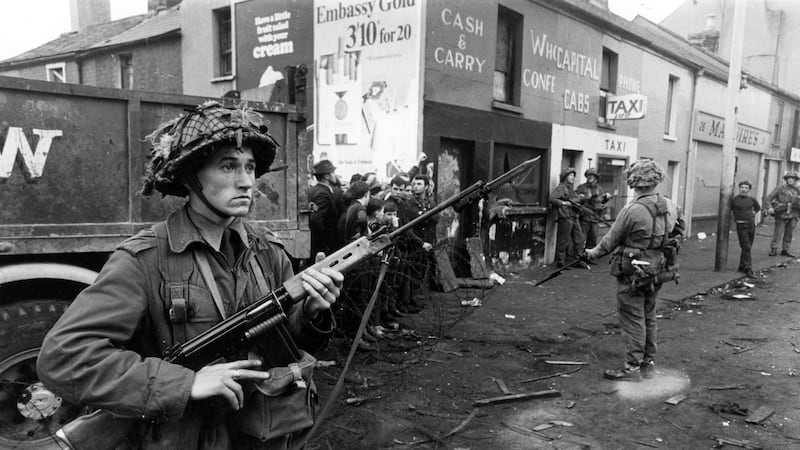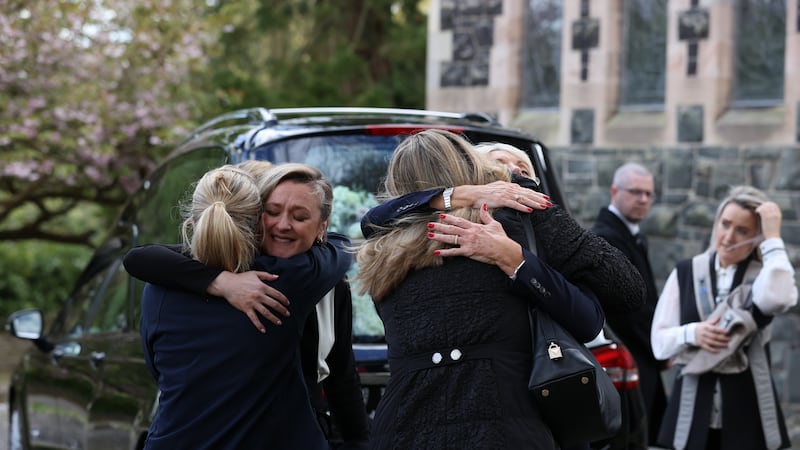IRISH News readers won't have missed Fr Martin Magill's signal contribution last week at the funeral of Lyra McKee - a stunning citizen, campaigning journalist and LGBT+ activist.
Many people have strongly affirmed and agreed with Fr Magill's sentiment, mirroring the ovation that filled St Anne's Cathedral.
Pockets of genuine criticism arose about the time and place of his utterance (though some spitefully turned this into ad hominem taunting).
But where else is more appropriate for a cleric to speak, other than the funeral service of an innocent murder victim in a house of God?
It's like questioning whether a columnist should speak in the columns of a newspaper, whether a lawyer should speak in the precinct of a courtroom, whether a politician should speak on the floor of a legislature (i.e. one that's actually functioning).
In addition, it's like questioning what each subject expert should be allowed to say at those respective pulpits.
Some more gracious critique piercingly queried the Church's position around LGBT+ rights in relation to new political talks and future social reform.
Informed observers would already know that this wrong has increasingly been agitating a global conversation within the Catholic Church, one that's rightly been challenging flawed doctrinal teachings.
Interestingly, afterwards, two politicians listening to Fr Magill's comments both officially embraced the substance of his intervention.
Sinn Féin's Mary Lou McDonald said: "I agree with Fr Magill. The murder of Lyra McKee is outrageous.
"In a clear, concise way he has said what I have heard all over Ireland, people want the Executive and Assembly up and running, people want equality and they want good government they can have confidence in."
The DUP's Arlene Foster said: "I think it was a very powerful moment... This isn't about how we react in a place of God to this sort of thing.
"I think what is important is what happens next. I spoke to Fr Magill to congratulate him on his powerful message and his very clear message. I think it's one we all listened to very carefully..."
A few days later, the thoughts of Rev Harold Good were less prominent, but no less significant.
Ahead of next week's multi-party talks, Rev Good, who worked closely with the late Fr Alec Reid, wrote: "Let us not leave it to politicians to struggle on their own.
"All of us have a responsibility to share. Those in business life, the church life, the media - whatever and whenever - we all have something more positive to contribute than the tired old excuses that we continually make to justify our lack of imaginative and courageous initiative."
Rev Good has fairly challenged all those of us privileged to speak in the public square.
The way we each bear witness to our own sincere beliefs speaks volumes about the values in our hearts.
Likewise, the way we each react to respectful but assertive challenges shines light onto whom we really are as people.
Our style of public discourse is a choice that impacts directly on its effect.
If angry discourse bullies others into a corner, their backs go against the wall.
But if thoughtful, challenging discourse creates space for others to move, then progress becomes possible. Why haven't we learned that?
Some public voices have long ranted - with tiresome cynicism - that Stormont doesn't matter, the Assembly is dead, talks wouldn't start until at least the autumn, and on and on.
However, statements from political leaders suggest such opinions are somewhat flawed, if not wrong.
Meanwhile, following Lyra McKee's murder in Creggan, other voices focused on poverty and economic exclusion as contributory factors to the social isolation of young people in Derry.
That's an important piece of the jigsaw. However, it doesn't explain the equally murderous intent of the very same gang that - the previous week - left a horizontal mortar tube near Castlewellan to murder ordinary public servants in the police service.
For too long, binary public narratives have been lazily stuck on organised grooves of 'message control' that don't fully reflect our changing society.
Different voices and fresh facts are today challenging existing hegemonies of the echo chamber.
It's called participative democracy, and it's no less important than electoral democracy.
The truth is that dignity isn't always reflected in strident tones, and honesty isn't always visible in strong words.
Very often, these are complex, layered factors that invite careful and deep discernment. Our public discourse needs words today that open space, not close options; that gift healing, not aggravate hurt.
Dignity, honesty, humility, generosity, discernment: if the public square doesn't reflect these values, then people should begin standing up themselves. Some citizens did just that last week.








